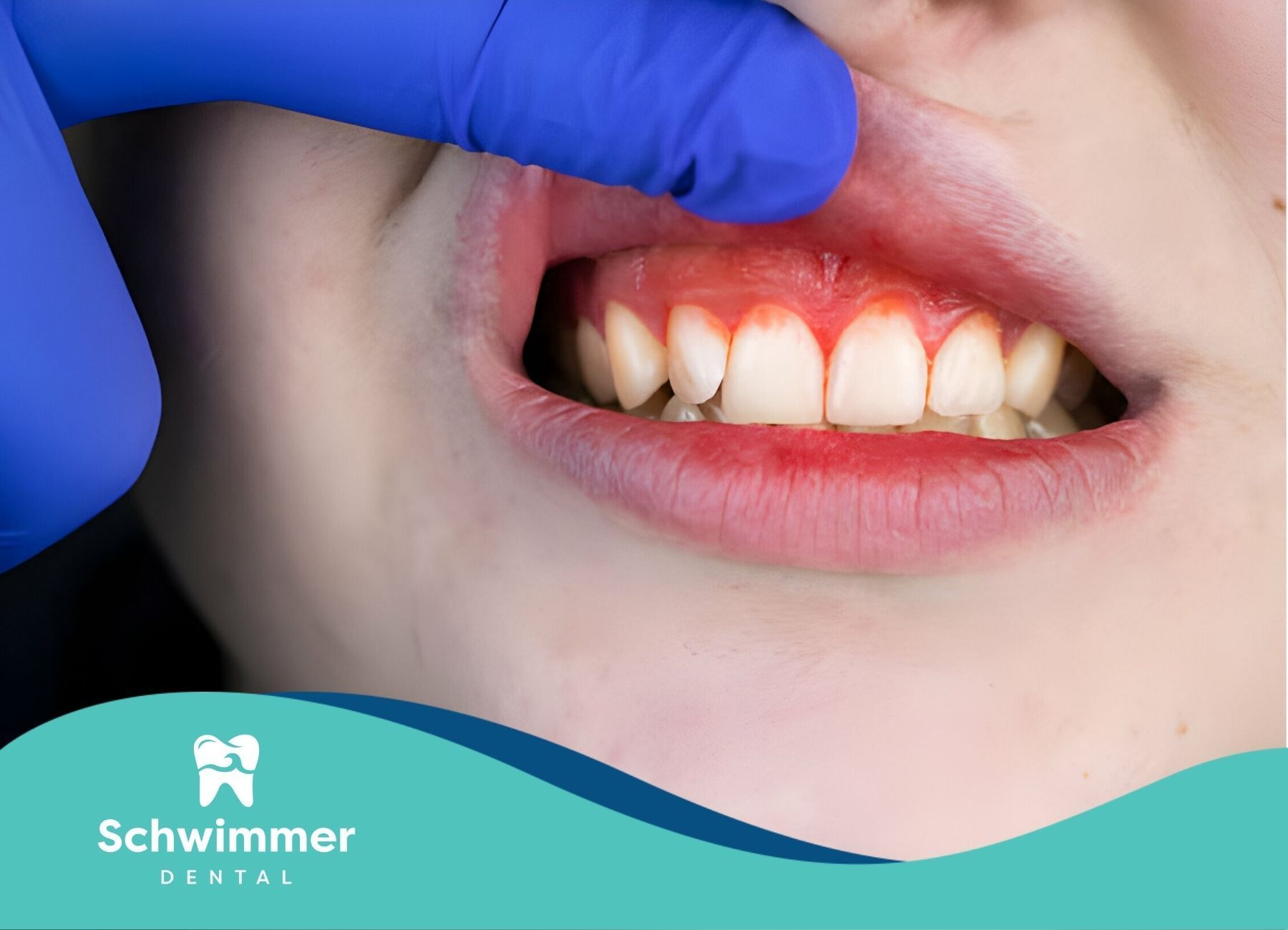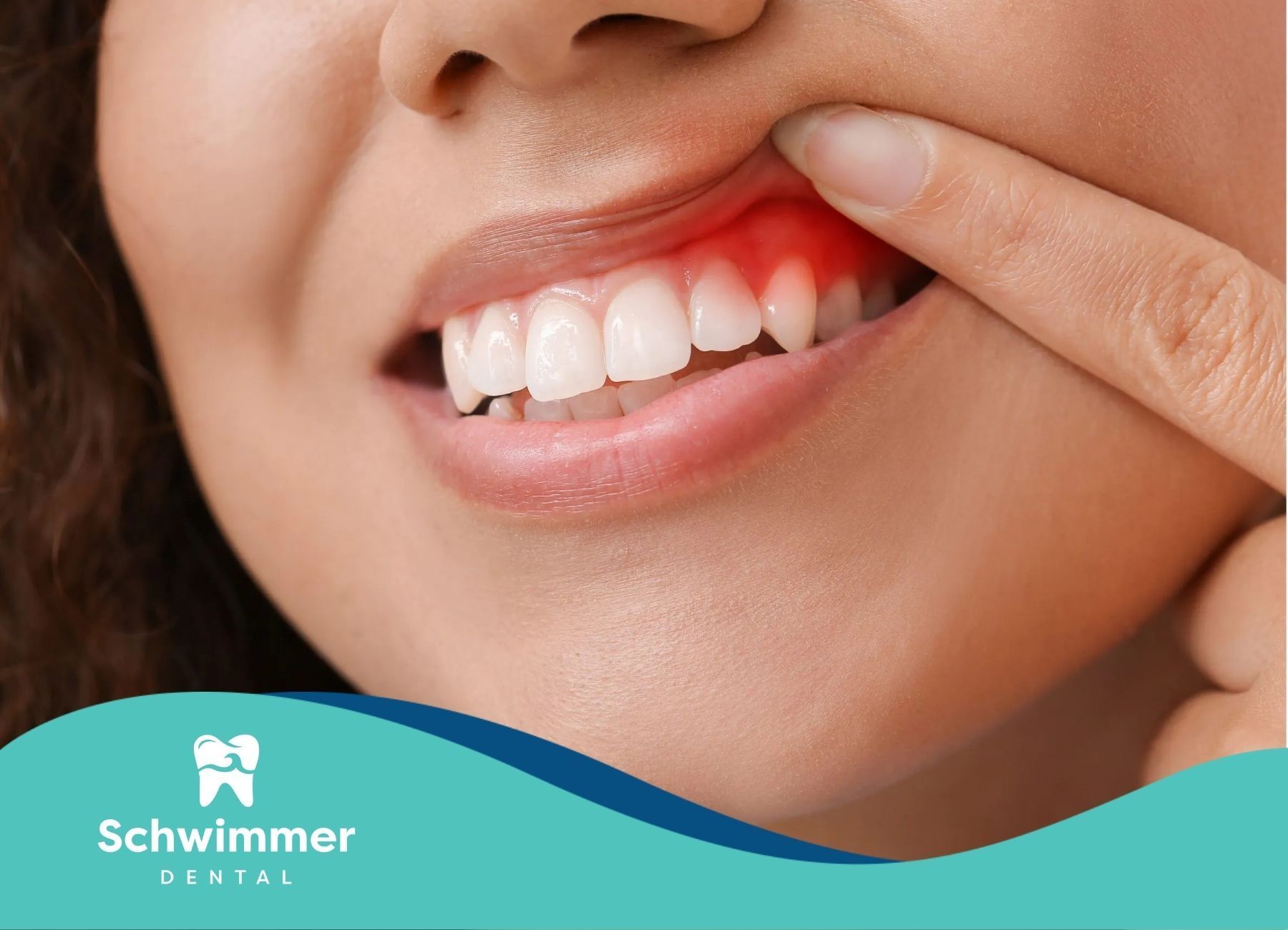Have an appointment? Complete the Intake Form
Ozempic and Dental Health: Insights for Patients
The drug Ozempic has gained considerable attention for its effectiveness in achieving significant weight loss and managing type 2 diabetes. While it offers numerous benefits for weight management and blood sugar control, it is essential to be aware of its potential side effects, especially those related to oral health. This blog post aims to provide insights into the connection between Ozempic and dental health, empowering patients to make informed decisions in collaboration with their healthcare providers.
Overview of Ozempic and Its Uses
Ozempic is the brand name for semaglutide, a glucagon-like peptide-1 (GLP-1) receptor agonist. Initially developed for type 2 diabetes management, Ozempic has also demonstrated remarkable effectiveness as a weight loss treatment.
Prescribed to adults struggling with obesity or those with type 2 diabetes, Ozempic promotes weight loss and helps regulate blood sugar levels. Its dual-action mechanism makes it a valuable tool for individuals seeking to improve their metabolic health and achieve sustainable weight management.
Role in Diabetes Management and Weight Loss
Ozempic plays a crucial role in diabetes management by effectively lowering blood sugar levels. It works by stimulating insulin release from the pancreas, particularly when blood sugar levels are high. This action helps prevent hyperglycemia, a dangerous condition that can lead to long-term health complications.
Beyond its impact on blood sugar regulation, Ozempic is increasingly prescribed for weight management. It targets the body's appetite regulation mechanisms, leading to decreased calorie intake and sustained weight loss. By slowing gastric emptying, Ozempic promotes feelings of fullness and reduces overall appetite.
Healthcare professionals often recommend Ozempic as a valuable tool for individuals who have struggled to achieve significant weight loss through traditional methods, such as diet and exercise. Its effectiveness in addressing both weight and blood sugar makes it an important medication for improving metabolic health.
Mechanism of Action and How Ozempic Affects the Body
Ozempic's active ingredient, semaglutide, functions as a receptor agonist, specifically targeting GLP-1 receptors in the body. GLP-1 is a naturally occurring hormone that plays a crucial role in regulating blood sugar levels and appetite.
When semaglutide binds to these receptors, it mimics the effects of GLP-1, leading to a cascade of beneficial actions. Primarily, it stimulates the release of insulin from the pancreas, particularly in response to elevated blood sugar levels. This action helps lower and stabilize blood sugar throughout the day, preventing dangerous spikes and crashes.
Furthermore, Ozempic influences appetite regulation by interacting with areas of the brain responsible for hunger and satiety cues. This multifaceted approach makes Ozempic a valuable tool for managing both blood sugar and weight.
Examining Ozempic's Impact on Dental Health
While Ozempic offers significant benefits for weight management and diabetes, it's important to consider potential oral health side effects. Like many medications, Ozempic can influence the delicate balance within the oral cavity, increasing the risk of certain dental issues.
One particular concern is the potential for dry mouth, a common side effect of Ozempic, which can negatively impact oral health. Understanding these potential risks empowers both patients and healthcare professionals to address concerns proactively.
Common Oral Health Symptoms Observed with Ozempic Use
Among the potential oral side effects associated with Ozempic use, dry mouth is particularly prevalent. This condition, medically known as xerostomia, refers to a decrease in saliva production, leading to a persistent lack of moisture in the mouth.
Dry mouth can cause considerable discomfort, including a sticky or dry feeling, difficulty swallowing or speaking, and even a burning sensation on the tongue. Beyond the immediate discomfort, however, reduced saliva flow can have long-term implications for oral health.
Saliva plays a critical role in maintaining a healthy oral environment. It washes away food particles, neutralizes harmful acids produced by bacteria, and provides essential minerals that strengthen tooth enamel. When saliva production is compromised, as is often the case with dry mouth, the risk of bad breath, tooth decay, and gum disease increases significantly.
Exploring Scientific Research on Ozempic and Oral Health Effects
Scientific research into the relationship between Ozempic and dental health is ongoing. While anecdotal evidence and patient reports suggest a potential link between the medication and oral health side effects, further research is necessary to establish a definitive causal connection.
Some studies indicate that GLP-1 receptor agonists, the class of drugs to which Ozempic belongs, may be associated with an increased risk of xerostomia and dehydration. However, many of these studies involve relatively small sample sizes and short durations, making it challenging to draw definitive conclusions.
Additionally, preexisting conditions common among Ozempic users, such as diabetes, inherently increase the risk of oral health problems, creating complexities in isolating the medication’s specific role. Ongoing and future research endeavors will hopefully provide clearer insights into this relationship.
Strategies for Maintaining Oral Health While Using Ozempic
Managing dental health effectively while taking Ozempic involves proactive measures that prioritize good oral hygiene, regular dental care, and open communication with healthcare professionals.
By incorporating these strategies into their routines, individuals can mitigate potential risks and maintain a healthy smile while reaping the benefits of Ozempic for weight management or diabetes control.
Daily Oral Hygiene Practices to Consider
Maintaining excellent oral hygiene is crucial for everyone but becomes even more critical for those taking medications like Ozempic that may increase the risk of oral health issues. Simple yet effective daily practices can significantly reduce the likelihood of developing these problems.
- Hydration is Key: Drink plenty of water throughout the day to combat dry mouth. Carry a water bottle with you for easy access and sip regularly, especially if you notice a decrease in saliva production.
- Boost Saliva Production: Chewing sugar-free gum or sucking on sugar-free hard candies can help stimulate saliva flow.
- Maximize Fluoride Protection: Brush your teeth at least twice daily using a fluoride toothpaste and consider using a fluoride rinse for added protection, especially if you experience dry mouth.
Incorporating these habits into your daily routine, along with using over-the-counter saliva substitutes as needed, are simple yet effective preventive measures to protect your oral health.
Recommendations for Regular Dental Check-Ups
Regular dental check-ups are an integral component of maintaining good oral health. For individuals taking Ozempic, these visits are even more critical for monitoring and managing any potential side effects related to the medication. Dental professionals play a crucial role in this process.
During these appointments, dentists can assess your overall oral health, identify any early signs of trouble, and recommend personalized preventive care strategies. They can advise you on the most suitable oral hygiene practices and, if necessary, suggest appropriate treatments or interventions.
| Dental Check-up Frequency | Recommendation |
|---|---|
| Every 6 months | Standard for most individuals |
| More frequently | May be advised for individuals with existing oral health concerns or those experiencing side effects from Ozempic |
Conclusion
In conclusion, maintaining optimal oral health while using Ozempic is crucial for overall well-being. Medications like Ozempic can have unexpected effects on your oral health, making regular dental checkups more important than ever. If you're searching for a trusted dentist near me, look for a provider who understands how your overall health connects to your dental care. Your dental health matters, so prioritize it alongside your diabetes management.
At Schwimmer Dental in New Jersey, patient care goes beyond the basics—they stay informed on how medications like Ozempic may impact your oral health. Their knowledgeable team takes time to understand your medical background and tailor dental care accordingly, ensuring your smile stays healthy and strong. Taking Ozempic or similar medications? Schedule a visit with Schwimmer Dental today and get personalized care that truly considers the whole you!
Frequently Asked Questions
Can Ozempic Cause Dental Sensitivity or Pain?
While not a direct side effect of Ozempic, dental sensitivity or pain can arise due to enamel erosion caused by frequent vomiting, a known side effect of the medication. If you experience any dental sensitivity or pain while taking Ozempic, consult your dentist.
What is the relationship between Ozempic and dental health?
Ozempic, a drug often prescribed for chronic weight management and diabetes, can potentially impact dental health due to its common side effect: dry mouth. Reduced saliva production can increase the risk of dental issues. It's crucial to maintain good oral hygiene and consult your healthcare provider about any concerns.
What are the common concerns or side effects related to dental health while using Ozempic?
One major side effect of Ozempic is dry mouth, which can contribute to dental concerns such as gum disease and tooth decay. Maintaining good oral hygiene and managing dry mouth symptoms are essential for mitigating these potential side effects of Ozempic.
Sources:
- https://www.ncbi.nlm.nih.gov/books/NBK603723/
- https://www.diabetes.org.uk/about-diabetes/looking-after-diabetes/treatments/tablets-and-medication/glp-1/semaglutide/ozempic
- https://www.teethtalkgirl.com/dental-health/ozempic-teeth-oral-health-side-effects/
- https://www.ncbi.nlm.nih.gov/books/NBK603723/
- https://www.ncbi.nlm.nih.gov/books/NBK545287/
Need Assistance? We’re Here to Help
We are dedicated to enhancing your dental health and well-being.
We provide personalized dental care solutions for a confident, healthy smile.
Contact us today for Professional Dental Care.

Our caring staff will help you feel relaxed and comfortable in our state of the art office. We respect your time and pledge to deliver prompt service, backed by the latest knowledge, techniques, and technology.
Email: Office@schwimmerdental.com
Tel: (848) 294-2385
Fax: (732) 899-3347
Address: 1115 Arnold Ave,
Point Pleasant, NJ, 08742
Schwimmer Dental – Website by CWS


